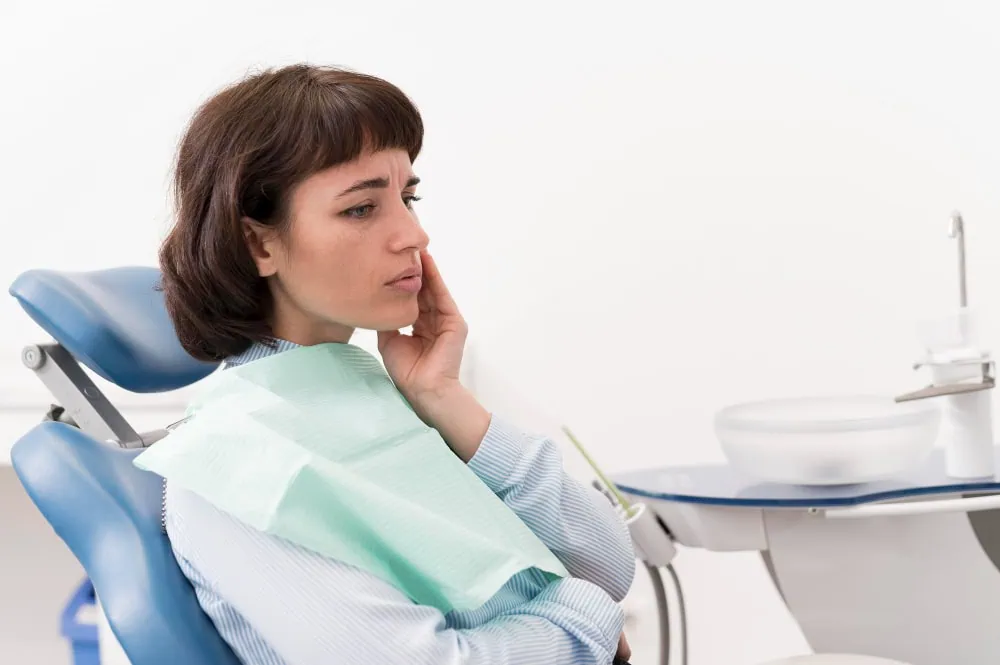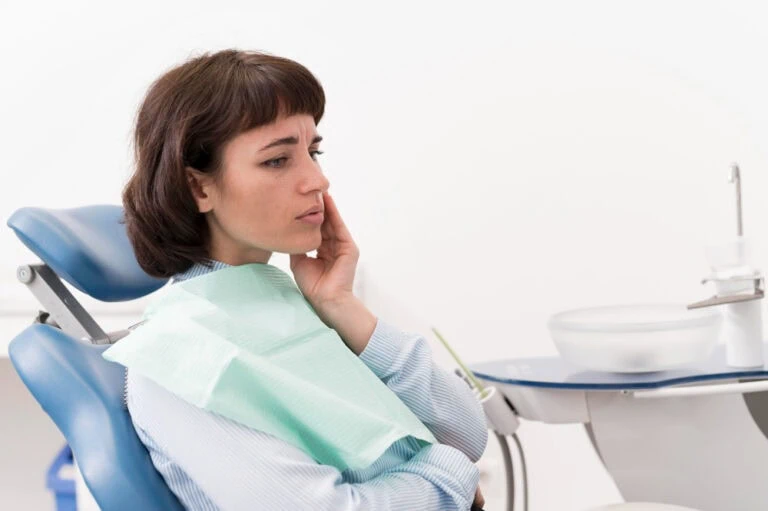After getting a dental crown, it’s important to understand the recovery process to ensure the best results and avoid complications. Dental crown recovery is typically straightforward, but patients can experience mild discomfort or sensitivity in the first few days following the procedure.
Knowing what to expect during your recovery period will help you manage any issues that arise and ensure a smooth transition back to normal activities. In this article, we will cover everything you need to know about recovery after dental crown placement, including immediate aftercare, dietary considerations, oral hygiene, and how to care for temporary crowns.
Understanding recovery after dental crown placement
Dental crowns are an effective way to restore damaged or weakened teeth, providing strength and a natural appearance. While the placement of a crown is a relatively simple procedure, the recovery process can vary depending on individual factors. It’s normal to experience some mild discomfort or sensitivity after the procedure, but this typically subsides within a few days.
Understanding the recovery process will help you manage any discomfort and avoid complications. Here’s an overview of what to expect during the dental crown recovery process.
Immediate aftercare for dental crown recovery
The initial hours and days following your crown placement are important for minimizing discomfort and ensuring proper healing. Here are some immediate steps for aftercare:
Managing numbness from anesthesia
After the procedure, your mouth will be numb from the local anesthesia used during the placement of your crown. This numbness typically lasts for a few hours, but it’s important to avoid chewing or biting down until the feeling has completely returned. If you accidentally bite or chew during this time, you may risk injuring the soft tissues in your mouth or damaging the temporary crown.
Initial pain and discomfort
It’s normal to experience some pain and discomfort after your dental crown placement, especially in the first 24 to 48 hours. You may feel soreness around the gums and jaw or mild tooth sensitivity. Over-the-counter pain relievers like ibuprofen or acetaminophen can help manage this discomfort. If the pain persists or becomes severe, contact your dentist for further advice.
Caring for temporary dental crowns: recovery tips
If you received a temporary dental crown while waiting for your permanent one, you’ll need to be especially careful during the recovery period to avoid complications.
Dos and don’ts for temporary crowns
Temporary crowns are placed to protect the tooth while your permanent crown is being made. Here are some tips to care for your temporary crown during this phase:
- Do be gentle with your temporary crown when eating. Stick to soft foods that are easy to chew.
- Don’t eat sticky or hard foods that could dislodge or break the temporary crown.
- Do avoid chewing on the side of your mouth with the temporary crown to minimize the risk of damage.
- Don’t use your teeth to open packages or chew ice, as this could cause the temporary crown to come loose or crack.
Adjusting to your permanent dental crown
Once your permanent dental crown is placed, it may take some time to adjust to the new crown in your mouth. Here’s what to expect during this adjustment phase:
Dealing with sensitivity and discomfort
In the first few days after your permanent crown is placed, it’s common to experience tooth sensitivity to hot, cold, or sweet foods. This is typically due to the tooth and gums adjusting to the crown. The sensitivity should decrease over time, but if it continues or becomes painful, contact your dentist to ensure the crown fits properly.
Adapting to the new crown in daily life
For the first few days after receiving your permanent crown, you may feel some discomfort when chewing or speaking. It’s important to give yourself time to adjust to the new crown. If the crown feels too bulky or uncomfortable, or if it’s affecting your bite, your dentist can make adjustments to ensure it fits properly and comfortably.
Dietary considerations during dental crown recovery
After getting a dental crown, there are some dietary considerations to help with the recovery process and ensure the longevity of your crown.
- Avoid sticky and hard foods that could damage your crown, such as caramel, chewing gum, and nuts. These can also dislodge temporary crowns.
- Choose softer foods that won’t put excessive pressure on the crown. Good options include soups, smoothies, mashed potatoes, and yogurt.
- Avoid extreme temperatures (like hot coffee or cold ice cream) for the first few days to prevent sensitivity from affecting your new crown.
Oral hygiene practices post-dental crown placement
Maintaining oral hygiene for dental crown recovery is essential for preventing infection and ensuring the longevity of the crown. Here’s how to care for your teeth after the procedure:
- Brush gently around the crown using a soft-bristled toothbrush. Make sure to clean the gum line and the crown surface carefully, avoiding aggressive brushing that could damage the crown or irritate the gums.
- Floss daily, but be cautious not to dislodge or damage the crown. Use waxed dental floss or floss threaders to carefully clean between the teeth without pulling the crown out of place.
- Use an antibacterial mouthwash to keep the area around the crown free of bacteria and promote healing.
Proper oral hygiene is essential to maintaining the health of both your crown and the surrounding teeth and gums.
Dental crown recovery time: what to expect
The recovery time after dental crown placement typically varies depending on the individual and the type of crown used. However, most patients experience minimal discomfort after a few days.
First few days after the procedure
In the first few days after getting your crown, you may experience mild sensitivity and discomfort. This is normal and should subside within a few days. If you experience severe pain or sensitivity that doesn’t improve with over-the-counter pain relievers, contact your dentist to check if adjustments are needed.
Long-term recovery and adjustment
Over time, your mouth will adjust to the crown, and any remaining discomfort should diminish. After about two weeks, you should feel completely accustomed to your new crown. If any issues persist or you have concerns, your dentist can evaluate the fit and make adjustments to ensure long-term comfort.
When to seek professional help during recovery
While most recovery after dental crown placement is smooth, there are situations where you may need to contact your dentist:
- Persistent pain or discomfort that doesn’t subside after a few days could indicate that the crown is not properly fitted or that there’s an underlying issue with the tooth.
- Changes in your bite or difficulty chewing could mean that the crown needs to be adjusted.
- Infection around the crown or gums, such as swelling, redness, or pus, requires immediate attention.
If you experience any of these issues, it’s important to seek professional help to avoid complications and ensure the success of your dental crown.
In conclusion, dental crown recovery is generally straightforward, but it requires attention and care to ensure the best results. At Neola Dental in Minneola, we’re dedicated to supporting you through every step of your recovery, helping you maintain a healthy smile. Whether you need guidance on managing discomfort, tips for caring for your crown, or professional adjustments, our experienced team is here to help. Take the first step toward a smooth recovery by exploring our dental crown services. Your smile—and your dental health—deserve the best care.

Josaida Contreras is a Doctor of Dental Surgery and Endodontics specialist with nearly 20 years of experience. Educated in both Latin America and the U.S., she continues to expand her expertise through advanced training in implant dentistry.







